Five Ways to Make Natural Compost for Your Plants
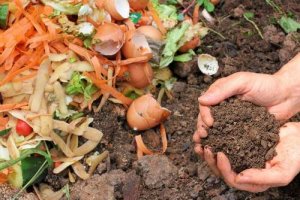
There are many ways to make natural compost to fertilize garden plants. In fact, although you can find fertilizer in any store or supermarket, there are other ingredients that are 100 percent natural that provide more nutrients for the soil.
In fact, compost has been used since ancient times for all crops. It was eventually replaced with synthetic fertilizer. Although the latter quickly nourishes the soil, it can cause harmful effects in the long term, since it ends up depleting it.
While it’s true that plant roots can’t tell the difference between synthetic and organic fertilizers, industrial fertilizers cause imbalances. Not only do they reduce the presence of ‘good’ microbes, but they kill earthworms.
1. Banana peel compost
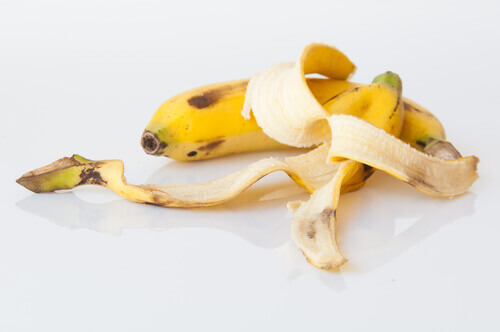
Banana peels are one of the best ingredients to make compost because they contain potassium. This essential mineral is one of the most important nutrients for plants apart from nitrogen. It plays a role in photosynthesis and the formation of resistant tissues.
In addition, it also helps revitalize plants when they’re no longer flowering or look a bit lifeless. You can either use banana peels in their natural state or make a natural compost with them.
Instructions
- Cut the banana peels into several strips and boil them in a pan of water for 15 minutes.
- Turn off the heat and let the mixture cool.
- Spray the mixture on the plants. You can leave the peels in the water if you like.
You might also be interested to read: Discover 6 Sustainable Garden Tips
2. Apple cider vinegar compost
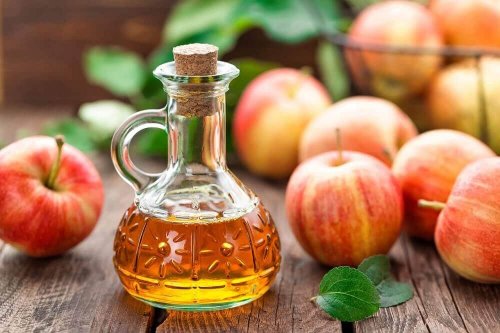
The acetic acid in apple cider vinegar can help fertilize plants that grow in acidic soils. The absorption of its nutrients helps keep plants in good condition and stops the leaves from looking burned.
Instructions
- Add a tablespoon of apple cider vinegar to the water you’re going to use for your plants and water them as usual.
- Repeat at least once a month.
3. Eggshell compost
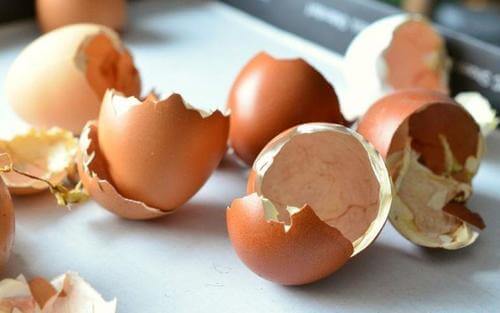
People often add other ingredients to eggshell compost. However, you can also use them on their own, as they contain a great deal of calcium. They also prevent blossom end rot in plants such as tomatoes, peppers, and eggplant.
Instructions
- Crush several eggshells and place them around the base of the plant.
- Alternatively, grind the eggshells into a fine powder and spread it around the plant.
4. Wood ash compost
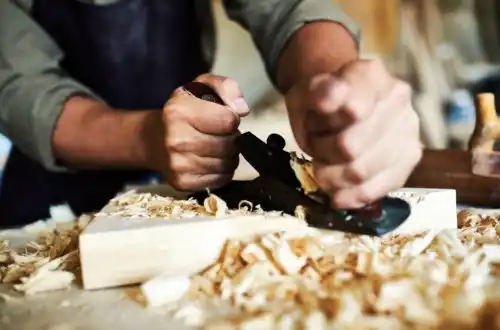
Wood ash compost promotes the maturation of several kinds of flowers and plants. This natural element contains high amounts of potassium and phosphorous, both of which are necessary for soil enrichment.
On the other hand, it also contains substances that repel ants and other pests. However, you shouldn’t use it on acidic soil plants because it alters the pH of the soil.
Instructions
- Take a good amount of wood ash and dilute it in water.
- Pour the liquid onto the desired plants.
- If you prefer, spread a thin layer of ash two or three centimeters away from the stems.
Note: You must make sure that the ashes aren’t from wood contaminated with metal or other contaminants. Otherwise, you could ruin your garden.
You might also be interested in: Types of Garden Soil and Their Characteristics
5. Algae compost
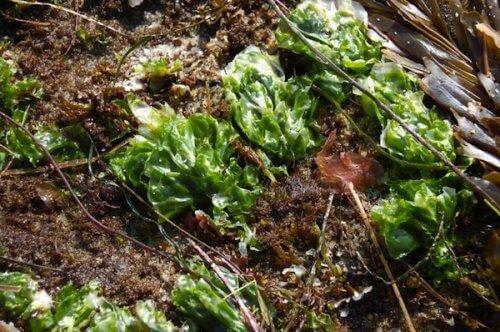
This type of compost isn’t too well-known. Algae is a natural ingredient, which is available both fresh and dried. It contains powerful trace elements that ‘good’ microbes in the soil feed on.
If you use this compost, your plants will always look healthy and you’ll also prevent them from wilting. Furthermore, it’ll protect your plants against certain microorganisms that cause disease.
Instructions
- Chop a generous amount of algae and put it in a bucket of water.
- Cover the bucket and let the compost stand for two to three weeks.
- Use the liquid to spray the soil.
- For small plants, spray on two cups. If the plant is medium or large, use four to six cups.
So, if you want to revitalize your garden plants, don’t waste your money on industrial fertilizers. Use any of the above ingredients and you’ll soon see for yourself how effective they are.
All cited sources were thoroughly reviewed by our team to ensure their quality, reliability, currency, and validity. The bibliography of this article was considered reliable and of academic or scientific accuracy.
- Ammar, E. E., Aioub, A. A., Elesawy, A. E., Karkour, A. M., Mouhamed, M. S., Amer, A. A., & El-Shershaby, N. A. (2022). Algae as Bio-fertilizers: Between current situation and future prospective. Saudi Journal of Biological Sciences. https://www.sciencedirect.com/science/article/pii/S1319562X22001759
- Departamento de Obras Públicas del Distrito de Columbia. (s.f.). Cómo compostar en su patio trasero. https://zerowaste.dc.gov/sites/default/files/dc/sites/zerowaste/Home%20Composting_Spanish_Final.pdf
- El Barnossi, A., Moussaid, F., & Iraqi Housseini, A. (2021). Tangerine, banana and pomegranate peels valorisation for sustainable environment: A review. Biotechnology Reports, 29, e00574. https://doi.org/10.1016/j.btre.2020.e00574
- Guidoni, L. L. C., Marques, R. V., Moncks, R. B., Botelho, F. T., da Paz, M. F., Corrêa, L. B., & Corrêa, R. K. (2018). Home composting using different ratios of bulking agent to food waste. Journal of Environmental Management, 207, 141-150. https://doi.org/10.1016/j.jenvman.2017.11.031
- U.S. Environmental Protection Agency. (2022). Composting At Home. https://www.epa.gov/recycle/composting-home
- Vázquez, M., & Soto, M. (2017). The efficiency of home composting programmes and compost quality. Waste Management, 64, 39-50. https://doi.org/10.1016/j.wasman.2017.03.022
- Wang, W., Zhang, L., & Sun, X. (2021). Improvement of two-stage composting of green waste by addition of eggshell waste and rice husks. Bioresource Technology, 320, 124388. https://doi.org/10.1016/j.biortech.2020.124388
This text is provided for informational purposes only and does not replace consultation with a professional. If in doubt, consult your specialist.








